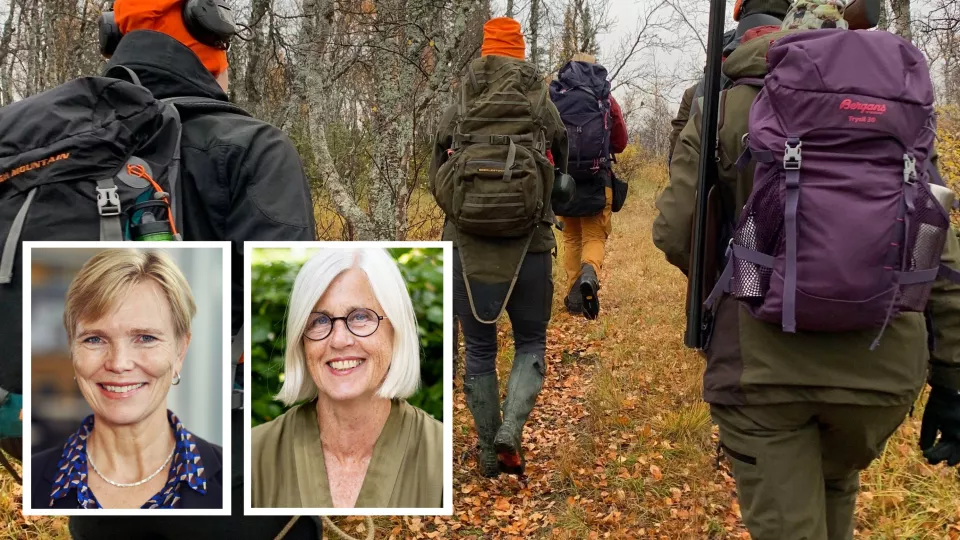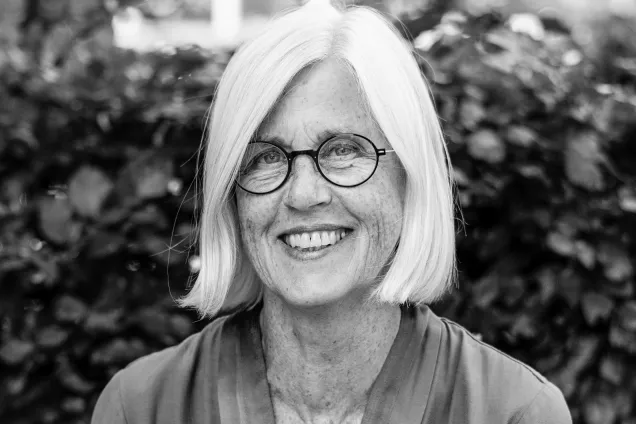With funding from the Swedish Environmental Protection Agency, Professor Erika Andersson Cederholm and Associate Professor Carina Sjöholm at the Department of Service Studies, Lund University, have conducted a study of hunting tourism in Sweden. The project focuses on the conditions for a socially sustainable hunting tourism and examines the relationship between an emerging commercial hunting tourism and a traditional hunting culture that is characterized by a stewardship-oriented hunting, where recreational hunters are performing the practical part of the Swedish wildlife management.
– Hunting is a debated topic, both nationally and internationally. There are lots of strong opinions, and public discussions related to hunting are often polarized. Hunting is controversial. For some people hunting is natural and part of a tradition, but for others it is a lot more peculiar as they may not have any personal relationship to hunting. But even within the hunting community there may be resistance towards commercial hunting. Sometimes local hunting teams perceive commercial hunting as a threat. We find that interesting, and that is one of the reasons why we want to shed light on these businesses and demonstrate the nuances in these practices, said Andersson Cederholm.
– We have found many different values associated with hunting tourism, for example economic, lifestyle, traditional and sustainability values. Some values clash with the commercial logic, and those clashes are interesting. The entrepreneurs have one foot in each world. One in the business world, one in the world of wildlife management, said Sjöholm.
In the study she and Andersson Cederholm have worked with some key concepts.
- The first is “moral economy”, that captures the complexity of making a business of hunting. All economic considerations are also moral considerations.
- The second is “balancing work”. The arrangement of letting friends hunt for free while customers must pay is an example of how the entrepreneurs must balance between a commercial and a non-commercial social world.
- The third is “servitization”, which is a term commonly used in service research. It means taking a step away from the product and instead focus on intangible services and experiences.
– In hunting tourism this means that you don't primarily sell the physical outcome of the hunt, such as trophies or a particular number of animals killed, but you try to create a memorable experience for the customer. Nice accommodation, delicious food, enjoying the outdoors, getting sustainable meat and the thrill of hunting. Many operators sell the experience instead of the physical outcome of the hunt, such as trophies or meat. This is because it is in the spirit of the times to engage in holistic nature experiences, as well as a market for it, but also because there is never any guarantee that the hunter will be able to shoot an animal, said Andersson Cederholm.
About the project
The studies in the project were conducted through fieldwork and interviews with around 30 entrepreneurs in different parts of Sweden. Erika Andersson Cederholm and Carina Sjöholm have previously conducted research on small-scale lifestyle businesses in rural areas.
The project was financed by the Swedish Environmental Protection Agency. Read more here.
Publications in the study
Andersson Cederholm, Erika & Carina Sjöholm (2022). Jaktturism – ett delikat balansarbete i en komplex ekonomi. RIG Kulturhistorisk tidskrift, nr 3: 129-146. (In Swedish)
Andersson Cederholm, Erika & Carina Sjöholm (2021): The tourism business operator as a moral gatekeeper – the relational work of recreational hunting in Sweden. Journal of Sustainable Tourism.
Andersson Cederholm, Erika & Carina Sjöholm (2021): De gränslösa svinen. In the special issue: Djuren! Våra moraliska och nationella gränser. Gränsløs. Tidskrift för studier av Öresundsregionenens historia, kultur och samhällsliv. Centrum för Öresundsstudier, nr 11: 42-53. (In Swedish)
Andersson Cederholm, Erika & Carina Sjöholm (2020). Decommodification as a socially embedded practice: The example of lifestyle enterprising in animal-based tourism. In Degrowth and Tourism: New Perspectives on Tourism Entrepreneurship, Destinations and Policy. Hall, M., Lundmark, L. & Zhang, J. J. (red.). London and New York: Routledge.




